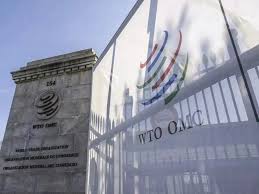The World Trade Organisation (WTO) has announced the creation of two separate expert panels to examine ongoing trade tensions between China and Canada. This development, disclosed on Monday, follows formal complaints from both countries regarding tariffs and import duties placed on a wide range of goods including electric vehicles, steel, aluminium, rapeseed oil, peas, and animal feed.
According to a statement from the WTO, its Dispute Settlement Body (DSB) met and agreed to set up the panels after both countries made official requests to address what they claim are violations of global trade rules. The first panel will handle China’s complaint against Canada, while the second panel will focus on Canada’s dispute with China.
Beijing is challenging surtax measures placed by Ottawa on Chinese-made electric vehicles and various steel and aluminium products. The Chinese government argues that the tariffs are unfair and inconsistent with the rules outlined in the General Agreement on Tariffs and Trade (GATT), which forms the basis of modern trade under the WTO.
The issue stems from Canada’s move to introduce 100 percent import tariffs on electric vehicles from China in 2023, following similar steps taken by the United States. The aim was to protect North American car markets from a perceived influx of low-cost, state-subsidised electric cars produced in China. In response, Beijing retaliated by imposing equally stiff 100 percent tariffs on Canadian agricultural exports, including rapeseed oil, peas, and oil cakes—products heavily traded between the two nations.
During the WTO session, China said it remains open to dialogue but insists that the Canadian measures violate international trade rules. It argued that the actions taken by Canada were discriminatory and aimed at limiting competition under the guise of national interest and economic security.
Canada, in its own statement to the DSB, described China’s response as disproportionate and said the import duties placed on Canadian agricultural and fisheries products are not in line with WTO obligations. Ottawa maintained that Beijing’s actions represent a unilateral trade retaliation, which is prohibited under WTO procedures.
Canada also pushed back against China’s inclusion of products like solar panels, critical minerals, semiconductors, permanent magnets, and natural graphite in its panel request. According to Canadian officials, there are no surtax measures currently in place on these products and including them in the complaint misrepresents the facts of the case.
Both parties, however, stated that they remain committed to resolving the disputes through dialogue and mutual understanding. The WTO echoed this sentiment, encouraging further consultations to reduce tensions between the two major trading nations.
The trade conflict is unfolding against the backdrop of already strained diplomatic relations between China and Canada. Ties between the two countries worsened in 2018 after the arrest of Meng Wanzhou, a senior executive at Huawei Technologies, on a US extradition request. The incident led to a series of tit-for-tat actions, including travel restrictions and trade barriers.
However, earlier this month, there appeared to be a shift in tone. Canadian Prime Minister Mark Carney and Chinese Premier Li Qiang held a phone call, after which both countries agreed to revive formal channels of communication in an effort to normalise relations. While this diplomatic effort is ongoing, the trade disputes now under WTO review remain a significant test for that process.
WTO panels typically take several months to complete their work. They will assess whether either country has violated international trade rules, and if so, recommend corrective actions. If the panel finds either side at fault, the decision could open the door for appeals or enforcement measures, depending on the outcome and level of cooperation.
As Canada and China both continue to play influential roles in global trade, the outcome of these disputes could have broader implications, especially for how major economies address disagreements in a rules-based international trading system.
